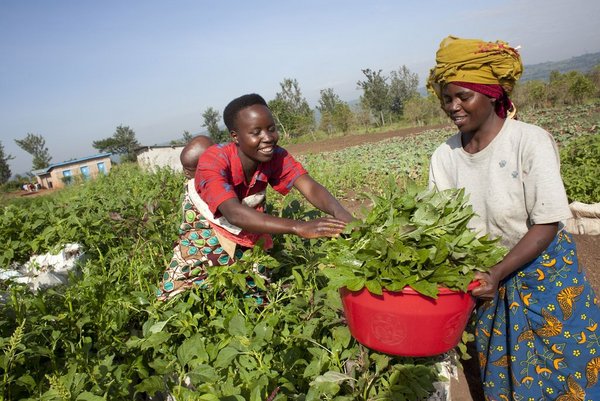- Share this article
- Subscribe to our newsletter
Cuts in official development assistance would be disastrous
More finance is required to support people in the poorest countries to address the dramatic increase in wars, violent conflict, hunger disasters, climate change-conditioned weather extremes and the economic impacts of the corona pandemic. With their “Kompass 2023”, in which Welthungerhilfe and terre des hommes Germany take a look at “the true state of German development cooperation” for the thirtieth time in succession, the organisations therefore call on the Federal Government to ensure reliable financing to support those most affected by the crises.
Germany must remain a reliable partner
In 2022, German official development assistance reached a record level of 33.3 billion euros, representing 0.83 per cent of gross national income. In achieving this, the Federal Government demonstrated a good response to the current crises, said Welthungerhilfe Secretary General Mathias Mogge, presenting the report. In spite of this, up to 828 million people are still suffering chronic hunger, while the number of people affected by acute undernutrition rose for the fourth time in succession in 2022.
However, according to medium-term financial planning in effect, as of 2024, the budgets of the Federal Ministry for Economic Cooperation and Development (BMZ) and the Foreign Office are to be subject to drastic cuts. “Such a decline in financing would be disastrous, as, for instance, the situation in Afghanistan shows, where not even ten per cent of what the United Nations estimates is needed in relief supplies has actually arrived,” said Joshua Hofert, Executive Board Spokesman at terre des hommes. If Germany was to fulfil its role as a reliable partner, finance for development cooperation must by no means decline again.
In addition, the Federal Government ought to campaign more vigorously for overcoming hunger, promoting democracy and the rule of law and supporting civil society organisations. Human rights must not be subordinated to economic interests. According to Hofert, this also applies to cooperation with countries under authoritarian rule. For children and youths who are in even more danger there than in other regions, he demands that protective mechanisms and support programmes be established to safeguard them from violence and exploitation.
More commitment to achieve the Sustainability Goals after all
Not only has the number of armed conflicts more than doubled since 2010, but as a result of the climate crisis, the number of extreme weather events has drastically risen, too. These are two of the reasons why the Sustainable Development Goals now seem hardly achievable by 2023, half-time regarding Agenda 2023. Therefore, according to Mathias Mogge, more has to be invested in the poorest countries, and especially in their rural regions. Mogge maintains that the development of social security systems needs to be supported and that both combating the effects of global warming and adapting to a changing climate require greater efforts. He says that human rights in agricultural supply chains have to be observed and that women must at last be enabled to contribute at eye level to planning and implementing development strategies. “The Federal Government has already formulated strategies and benchmarks for many of these demands. Now the political will has to be there at all levels to really put these targets into practice. We must at last walk the talk!” the Welthungerhilfe Secretary General demands.
(whh/tdh/sri)
More information:
Kompass 2023: Development policy recommendations for the Federal Government





Add a comment
Be the First to Comment